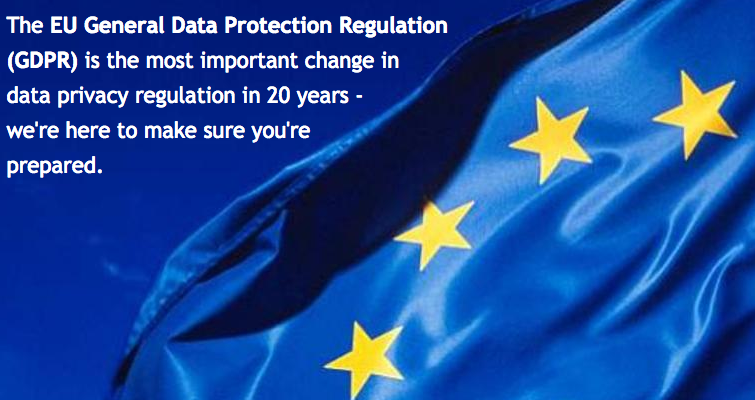Amidst a major data breach, Facebook is facing the reality of strengthened regulations regarding users’ privacy. The purpose is to make users aware that when they agree to allow third-party applications access to their profiles, their information is shared with outside websites and apps. New regulations aim to enable users to pick and choose who can see their information.
For years, Facebook has been immersing itself in the business of helping companies flourish through the platform’s ad platform and detailed insight into users’ data. From offering boosted posts to paid ads with measurable results, Facebook has positioned itself as a necessary marketing tool in today’s world. Companies have the potential to reach their fans, friends of fans, or those who meet demographic criteria, including job titles and even annual income, of people across the globe who may be interested in what they have to offer. Ads that users see on the platform may also be following them to other mobile apps with the help of the Facebook Audience Network and the FB Pixel.
These marketing tools have worked because they can be personalized for the user via their data, they lead to measurable results, and offer cross-platform targeting. The program has made it easy to advertise online through one click, as the system will handle optimization and delivery. Publishers improved monetization opportunities with enhanced ad experiences increasing engagement and value; developers implemented native ads that look like original content, and advertisers grew their ideal audience from Facebook and on to mobile applications and websites. As the site is quickly approaching the 2 million user mark, the opportunity in reaching beyond the initial sought after audiences is the leverage Facebook has had on its competition. With new user privacy regulations, this may pose new challenges.
 In Europe, the General Data Protection Regulation is being introduced to “harmonize data privacy laws across Europe, to protect and empower all EU citizens data privacy and to reshape the way organizations across the region approach data privacy” via EUGDPR. According to Business Insider, this means Facebook will have to ensure European users take a look at their privacy settings before May 25th, or the social network risks being fined 4% of their annual turnover, which could equal billions of dollars. The question is, will the GDPR make its way across the Atlantic?
In Europe, the General Data Protection Regulation is being introduced to “harmonize data privacy laws across Europe, to protect and empower all EU citizens data privacy and to reshape the way organizations across the region approach data privacy” via EUGDPR. According to Business Insider, this means Facebook will have to ensure European users take a look at their privacy settings before May 25th, or the social network risks being fined 4% of their annual turnover, which could equal billions of dollars. The question is, will the GDPR make its way across the Atlantic?
The United States has not yet seen the GDPR, however lawmakers expressed more interest in regulations during Mark Zuckerberg’s recent testimony. Zuckerberg even recognized that regulations are bound to come, “The Internet is growing in importance around the world in people’s lives; I think it’s inevitable that there will be some regulation.” He even assured Congress that Facebook would work with them to put together regulations that prioritize consumers’ privacy rights. If these regulations are put in place, it would be great for the user, but how would it affect businesses?
If users “opt out” of sharing their data on Facebook, it would have an impact on how effectively businesses could advertise. Gathering user’s data is essential to creating targeted audiences, if that data is not available, it will be harder to identify individuals who would be interested in a business, as well as gain information on existing fans. Features like core audiences, custom audiences, and lookalike audiences would be challenging to form, as their accuracy may not be as effective as it once was.

Another factor is if Facebook did face a fine, they may charge more per reach for ads and boosted posts to accommodate paying the fine. This could financially hurt businesses as they would need to allocate more of their budget to social ads and boosted posts that may not be as efficient, but taking social media out of the budget should be out of the question for businesses. Regardless of regulations, social media will still be among the best places for businesses to gain the attention of potential customers.
In an effort to be more transparent, a new bill,The Social Media Privacy Protection and Consumer Rights Act of 2018, is aiming to protect users and ensure companies are compliant with privacy policies. The bill would require websites to provide users with a free copy of their data that’s being collected, as well as a list of who has had access to that data, either through a sale or simply by it being made accessible. This would dive into detail according to Slate, “companies would disclose how personal data collected about users is leveraged—for example, through targeted advertising—and how employees of the company have access to it. And if a website does mishandle users’ personal data, the internet company would be required to alert users within 72 hours.” Right now there are no requirements like this, but companies should be aware that this has the potential of coming to fruition.
With the noise around Facebook and privacy efforts, it is vital to listen to how new regulations could affect you on a personal level – and your business’ online presence. If you are interested in learning more or have any questions on the impact on your business reach out to us at biz@lotus823.com.








